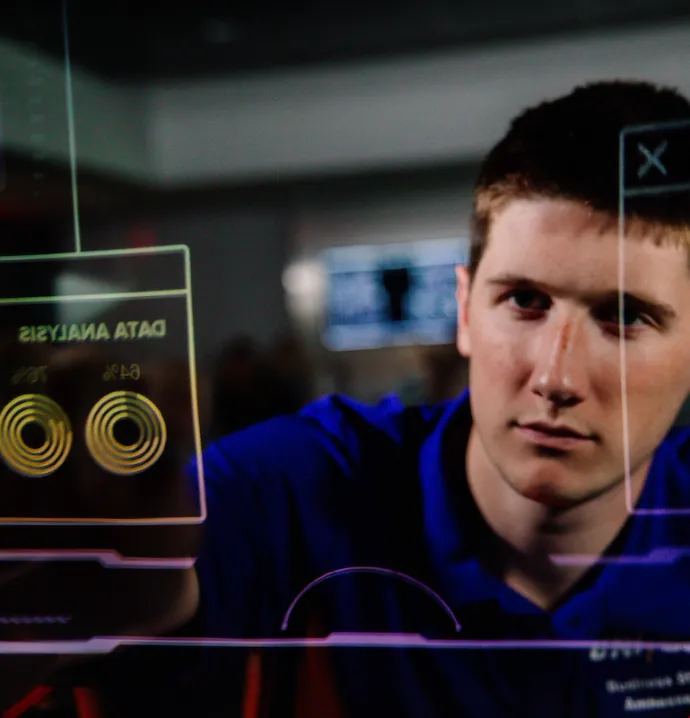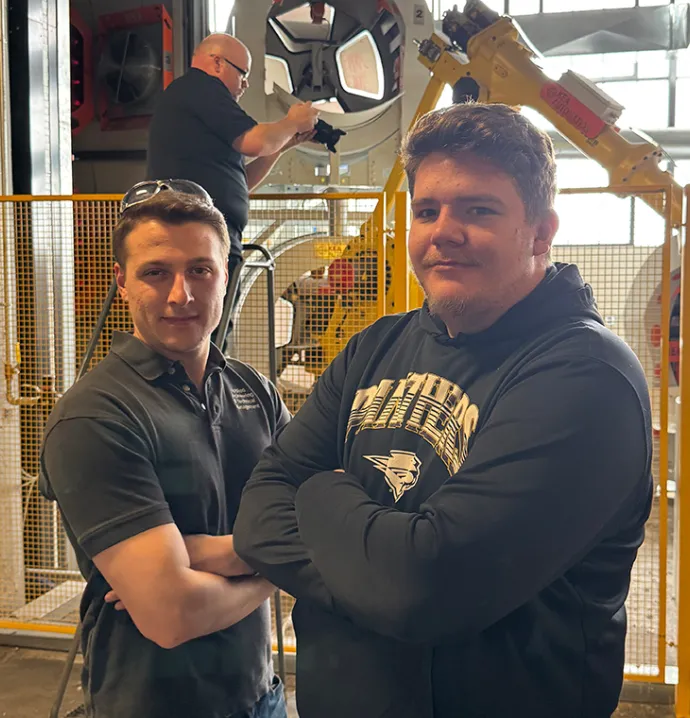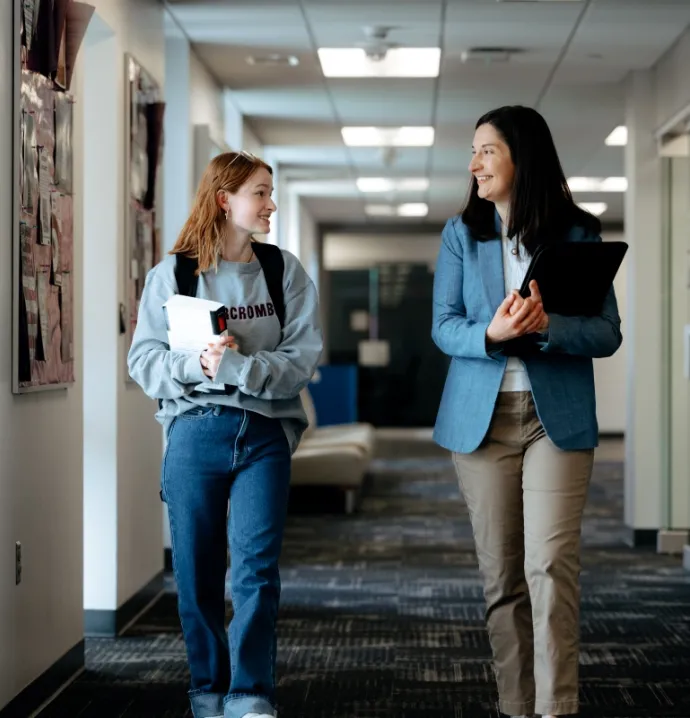Rohde picks up the baton as Director of Orchestral Activities
Rohde picks up the baton as Director of Orchestral Activities
Orchestral music has been around for centuries, and Erik Rohde is working to be sure it is around for many more.
As the next step in a career that has seen him perform in recitals and festivals throughout the United States, Europe and Asia as well as lead several well-renowned performing groups, Rohde became UNI’s new orchestra director earlier this year after hearing glowing reviews about the university.
“What I heard over and over and over again is that the people who work at UNI are really happy to work there,” Rohde said about the people he spoke with. “That is something I want to be a part of.”
He also appreciated UNI’s role as a teaching college, preparing future music educators.
“I really believe in that mission of teaching teachers,” Rohde said. “It’s such a powerful way to impact the lives of so many young students.”
Of course, there will be challenges. With COVID-19, music ensembles are facing particular difficulties as they try to plan how to move forward with new norms such as social distancing and mask wearing.
“When what you do is steeped in a tradition that lasts for two centuries, how do you adapt it for something like (COVID-19)?” he said. Rohde is determined to find a way. “At a time like this, we need to keep making music, to keep marking art. Not just because it’s normal, but because it’s needed for the human spirit.”
The first weeks of the semester were restricted to only string players, because they could wear masks. In the last few weeks, Rohde added wind players to make a full orchestra and is using specific protections for different wind instruments to reduce aerosols, limited rehearsal time and plastic sheeting to keep everyone safe.
“This makes music making so much more complicated, but it is worth it to continue to create art together,” Rohde said.
After six years with Indiana State University, Rohde is excited to bring this passion for music education to UNI, where he follows in the footsteps of his predecessor, Rebecca Burkhardt, whose career at UNI spanned over 30 years. “What I feel is very lucky to come into a program that is doing well, to follow a person who was very loved by her students.”
And Rohde will bring with him years of experience as an educator and performer that will be a boon for UNI music students.
“Dr. Rohde is a well-seasoned educator, performer and conductor who brings excitement and enthusiasm to our program,” said School of Music Director Jeffrey Funderburk. “As an accomplished violinist, our colleagues have another gifted artist with whom to collaborate and our students have yet another fine performer to help mentor them as they advance their own skills. Rohde's educational experience is also impressive and diverse with degrees in violin performance, orchestral conducting and biomedical engineering.”
And although he built a successful career as a musician, Rohde doesn’t minimize the difficulty. “If you want to go into music, you have to be so compelled you can’t do anything else,” he tells them.
Rohde’s love of music started when his parents enrolled him in Suzuki violin lessons at age 4, and it quickly became part of his identity. “Being a musician was always just a part of who I was,” he said.
That wasn’t where he thought his career would go, though. Having grown up in Rochester, Minnesota, Rohde saw advances in medicine and technology happening all around him. When it came time to declare a major in college, Rohde chose biomedical engineering. He liked math and science and it seemed like the way to go. But he also declared a second major in music, so he’d be able to continue his lessons with a professor and not a graduate student. As his education went on, he came to a realization.
“The engineering classes were always very interesting,” Rohde said. “But the music classes, I loved.” With that realization, his path became clear. While he finished both degrees, he went on to pursue advanced degrees in music. “I chose to do this because it’s what I love. It’s what makes me alive.”
Rohde now works to repay the favor to the art form he loves. “I do a lot of work with living composers, contemporary music,” he explained. “It’s important for us to remember that even though this tradition is centuries old, it’s still alive.” He has premiered and commissioned new works by established composers and is the founding artistic director of the Salomon Chamber Orchestra, a group dedicated to promoting the works of living composers as well as Haydn and his contemporaries.
Working with composers through the music writing process, Rohde said, is a unique opportunity to have an impact on the future of the tradition. “When you’re working with a piece where the composer is historical, you can’t make any suggestions. But when you’re working with a composer who’s right there, you can ask ‘What were you thinking here?’” Rohde explained. “It gives you a chance to put your mark on the music that’s being created.”
In addition to his teaching role, Rohde is music director of the Winona (Minnesota) Symphony Orchestra. In the last year, he released two recordings with composer Elliott Miles McKinley and is working on a set of companion pieces with McKinley, which are written to be played with the Bach Solo Violin Sonatas and Partitas.
In his native Minnesota, Rohde has served as the Music Director of the Buffalo Community Orchestra, conductor and violinist for the Contemporary Music Workshop, Camarata Suzuki orchestra conductor for the MacPhail Center for Music, String Ensemble conductor at the Trinity School, and first violinist of the Cantiamo and Enkidu String Quartets.
The Northern Iowa Symphony Orchestra will hold its first concert of the season at 7:30 p.m. on Oct. 28 via a livestream from the Gallagher Bluedorn Performing Arts Center. The livestream can be found on the School of Music’s YouTube channel or website. The performance will include a work by the living Hawaiian composer Michael-Thomas Foumai, whom the orchestra met via Zoom a few weeks ago.




